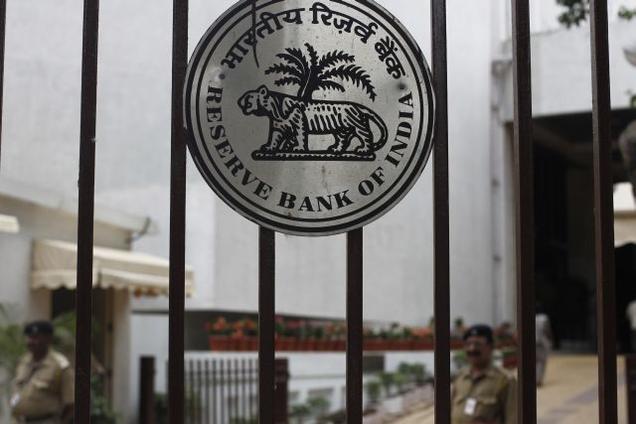By : Akash Singh Sufi
In today’s era, banking sector acts as the pillar of modern business as Finance is the soul of trade, commerce and industry. Banking system plays a vital role in the development of every nation.
A bank is a financial institution chartered by the government in order to receive money by individuals and entities who want to deposit it and it lends money to needy on certain terms and conditions. The term ‘Bank’ originated from the French word ‘Banco’ which means a Money exchange table.
The Bank offers two major products such as checking accounts and deposit accounts. A checking account refers to an account where account holder can transfer money by electronic payment or check to an individual or an association that he authorizes as payee. A deposit account refers to money market accounts and savings accounts which pays interest on cash in those accounts.
Savings Account cultivates a habit of savings in account holder and it allows him to deposit and withdraw money as per his choice. Generally, this sort of account pays lower interest rate than a money market account or CD but pays higher interest rate than a checking account. Some savings accounts levy a fee if account holder’s balance falls below a specified minimum balance amount.
If you want your funds to be safe and liquid which can manage unpredicted expenses like emergency medical expenses or automobile maintenance then deposit account is a right destination.
Money market deposit account (MMDA) is like savings account; however it may pay higher interest rate as account holder is required to have higher money balance than savings account. MMDA invests your balance in short-term debt such as Treasury Bills or commercial papers.
Certificate of deposit (CD) are less liquid compared to savings accounts, where one can deposit money for a permanent term which differs from six months to five years and here bank pays you interest until maturity. One need to deposit the money in lump sum and you can’t withdraw or put in extra money during the term. In case, you want to withdraw your cash before maturity then you need to pay substantial penalty as per the bank’s terms and conditions.
If you want to set aside money for future financial goals keeping in mind the term for the same, then CD is the best option to opt for. It also pays higher interest compared to savings or money market accounts.
Negotiation is one of the most powerful weapons in your armory. Minimizing cost or earning extra income is the way to have more money; hence your negotiation skills will majorly decide the outcome of negotiations with a bank.
There are some options for restructuring the loan through negotiations such as payment of interest only, postponement of principal and interest payments both, exoneration of principal amount, reduction of interest rate and extending the maturity date of loan.
If you want to negotiate effectively with the bank to alter a loan terms, then you need to realize bank’s point of view.
•Payment of Interest only: Paying only interest and deferring principal amount for a time being helps a lot to borrower with older loans that have a huge principal amount.
•Postponement of principal and interest payments both: Though bank hate this but in some cases where the time span is short, it considers this alternative , if it has good market valued collateral security.
•Exoneration of principal amount: Hardly, bank opts for this option but it may consider this option if repayment of the loan is mainly doubtful.
•Reduction of Interest Rate: No bank will go for this, but as per the given situation, it may consider this option.
•Extend the Maturity Date of Loan: The bank may extend the maturity date as it keeps the loan in fully performing status rather than altering other loan terms and conditions.
Lack of communication mars the Bank – customer relationship. In case if you won’t be able to make the next loan payment then it is sensible to have prompt communication with your bank which helps build trust and credibility. Let the bank know your problems, approach it as soon as possible which can help bank to look into the problem and come up with the solution. It may result in concessions on the given loan.
How to slash banking costs:A little bit of planning can keep your banking cost down. For example: you can use your own bank’s automated teller machines (ATM) to avoid access charges levied by other bank ATM’s. You may also earn cash back using debit card to buy things at supermarket, this will offset the other ATM’s service charges levied on non-customers.
In order to avoid charges for bounced checks and insufficient funds with your checking account, you may opt for overdraft protection services however this service is offered by banks against a nominal fee (as per bank terms).
Pay your credit card bill in time in order to avoid late payment charges and maintain your credit record as non-payment of charges in time could increase your credit card interest rates.
If we choose our life partner we look for number of qualities, so why don’t we follow same principle while choosing the bank. Let’s have a look at some necessary features:
Reasonable Fees: Now-a-days banks are charging for additional services, such as opening and maintaining a checking account, check copies, hard copies of bank statements, overdraft protection, money orders, bounced checks, monthly maintenance fees, ATM fees and other fees. Look for a bank that charges little fees and few banks also refund ATM fees. Find out the charge for using other ATM machines.
Online and Mobile Banking: There are number of benefits of online banking- easy access to account details, any time banking, no queues, and ease of managing your transactions. Look for a bank that offers free online bill pay, mobile banking and free online banking. If you are web-savvy customer and looking for convenience then online and mobile banking are best features. Find out about security measures and additional fees.
Low Minimum Balance Requirements: Look for a bank which offers a minimum balance to open and maintain accounts without paying charges as several bank accounts will levy a charge if you are unable to maintain minimum balance requirement.
Good Customer Service: Find a bank that addresses your grievances within a short span of time and value its customers. Good customer service plays a vital role in retaining customers and attracting potential customers. Have a look at phone service of bank to see if it is convenient as some of the banks don’t bother to answer phone calls.
Convenient timings, locations and reachable ATMs: Search for a bank with convenient opening and closing timings, convenient location, and reachable ATMs. Most of the people prefer the bank with many ATM locations.
Direct deposit: Some of the banks offer direct deposit with incentives in order to attract customers due to high competition among financial players.
Low Rate Loans: Do extensive research and find the bank that offers personal loans, home loans and auto loans at low rates.
Highest interest rates on bank accounts: Find a bank that offers high yield on your bank account. Look for special savings accounts and CDs with high interest rates. Due to stiff competition banks are offering very competitive interest rates, hence you can capitalize on the same.
Bank’s additional Products and Services: Look for a bank that offers best products and services which caters to your demand. Such as Retirement planning, Share trading account, insurance, auto loans, home loans, and CDs at minimum cost.
Understand your need and then opt for suitable bank as per your need as simple as that.
In today’s cut throat competition, sound decisions made by organizations play a major role in achieving its financial goals. Mostly, the options of finance available for any business are equity, debt, hybrid and bank loans. Let’s see what these sources of finance are:
Equity: Mostly, well-known companies opt for equity financing in the primary market through Initial Public Offer (IPO). Whereas, small businesses, that do not have access to capital markets opt for venture capital, it refers to capital provided by rich investors and other financial institutions to fund small businesses against some monetary returns (as per the terms and conditions).
Equity capitalis the most common form of financing. It is stockholders’ equity or owners’ equity provided to companies for running their business. Equity share holders enjoy the right of ownership; they are also exposed to risk capital as there is no guaranteed return. However, as the risk is high, so the expectation of return by shareholders from business is also high.
The balance share of shareholder’s equity is retained earnings, except share capital. It is nothing but profits earned by an organization that is not distributed among shareholders (dividends) however it is reinvested in its business.
Hybrid: Hybrid finance allows flexibility to organizations due to its combine feature of equity and debt as equity features may improve organization’s financial ratios and debt features help it reach tax-deductible distributions. It includes preference shares, convertible and redeemable shares.
Term loan, government aid, debenture capital and miscellaneous (unsecured loans and public deposits) are classified under Debt Finance.
Term Loan refers to secured borrowing from financial instructions such as banks.
Bank Loans: Banks could offer loans for a longer period of time against some rate of interest, which differs from bank to bank. Bank loan is a significant source of long term finance. However, paying back principal and interest of loan can be a tough job.
Government Aid refers to monetary assistance offered by Government agencies.
Debenture Capital refers to secured debt instrument where an organization is obliged to repay the debenture capital (interest and principal) at a certain date to debenture holders, as per the terms and conditions attached to repayment.
Miscellaneous sources include unsecured loans and public deposits.
If an organization has recently entered in the business arena, then best option to opt for is Equity as this will help organization to attract huge funds with no liability of paying back (depends on the profit or loss of the organization)
Whereas, mature organization may opt for debt as it can handle timely cash flow due to obligation of a disciplined repayment of interest and principal. It may opt for bank loans as well as this is an important source of longer term finance. An organization also has an option of hybrid finance like preference shares, which has got the features of both debt and equity.Organizations may use the combination of the above given sources of finance depending upon its urgency of funds, keeping in mind the current and future condition of business.
Note: Mr. Akash Singh is a Founder of Being Spirit- Training & Consultancy Services with a Spiritual Touch. (We turn Knowledge into Wisdom) He is a Bachelor in Management Studies (BMS) from Mumbai University and pursuing MBA IB (HR) from Amity International Business School. He has more than Two and a half years of work experience in various fields such as Finance, IT and Customer Service.Management Ideas through Spirituality (Hanuman Chalisa, Kabir K Dohey and Holy Religious Signs from Management Angle) is a book penned down by Mr. Akash Singh. The book is an effort to draw parallels between religious scriptures and modern day management concepts.






0 Comments